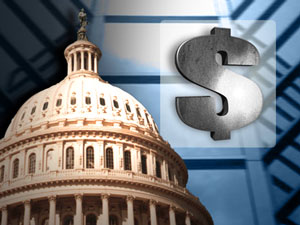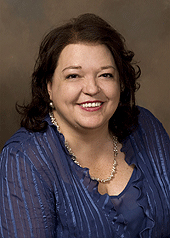Exposing the 1 Percent: 'Money isn’t speech, corporations aren’t people'
By Kanya D’Almeida | Last updated: Feb 2, 2012 - 1:50:58 PMWhat's your opinion on this article?

January 20 marked the second anniversary of the landmark Supreme Court ruling in Citizens United vs. the Federal Election Commission, where the country’s most respected justices “overturned a hundred years of election finance laws by ruling 5-4 that Congress cannot limit spending by corporations in elections.” |
But scores of indignant citizens in well over a hundred cities across the U.S. took to the streets recently to expose how the richest one percent has hijacked the very foundations of democracy in a country whose constitution of 1787 promised to be by the people, for the people.
January 20 marked the second anniversary of the landmark Supreme Court ruling in Citizens United vs. the Federal Election Commission, where the country’s most respected justices “overturned a hundred years of election finance laws by ruling 5-4 that Congress cannot limit spending by corporations in elections.”
The decision struck at the very heart of what many U.S. citizens have felt for years—that despite a careful constitutional separation of the executive, legislative and judicial branches of the government, corporate capital had infected the body politic from head to toe.
The result, according to Lisa Graves, executive director of the Center for Media and Democracy and a coordinating member of the constellation of organizations dubbed United for the People, has been an increase in outside spending on elections from $68.9 million in 2008 to $304.7 million after the ruling.

Lisa Graves, Center for Media and Democracy
|
“We are demanding that this decision be overturned by a constitutional amendment,” she added.
According to United for the People’s statement of common purpose, “Generations of Americans have amended the Constitution over the years to ensure that ‘We the People’ means all the people, not just the privileged few. The Citizens United case, which opened the floodgates to unlimited corporate spending to influence elections at all levels of government, has brought home the importance of amending the Constitution to ensure that ‘We the People’ does not mean we the corporations.”
By ruling that the government cannot curb spending and lobbying by unions, corporations or even powerful individual stakeholders, the Supreme Court green-lit the proliferation of Super PACs (political action committees) that are unfettered by electoral laws or transparency and free to pour unprecedented amounts of money into campaigns of their choosing.
Super PACs can also drag their feet on releasing hard data on how much money actually changes hands during election cycles and, in the new arena of impunity granted by the Supreme Court, can accept donations from registered 501(c) nonprofit entities that are exempt from exposing the identities of those who bankroll elections at will.
Much of this money is funneled directly into TV ads, the bulk of them bordering on smear campaigns against opposing candidates. According to investment banking and asset management firm Needham and Co., television stations this year will rake in as much as $8 billion from political campaigns.
President Barack Obama’s own campaign adviser, David Axelrod, claims that these competing commercials have become the “nuclear weapon” on the battlefield of electoral politics.
With the “occupy” movement still blazing despite the freezing weather, hundreds of protestors amassed outside multiple courthouses Jan. 20 under the banner “occupy the courts,” chanting and passing out flyers about the corrosive impact of corporate influence in politics.
“The Citizens United ruling is the perfect example of the undemocratic nature of a society controlled by the one percent,” Tony Murphy, an organizer with Occupy For Jobs, told IPS.
Mr. Murphy was arrested days earlier for participating in a peaceful action inside the lobby of a Bank of America, in commemoration of Martin Luther King Jr. Day.
“We didn’t block anybody from using the ATM machines—we were arrested for nothing more than calling for a comprehensive jobs program, like the kind we saw in the 1930s, where the government put millions of people to work. The only way to fund such a program today would be to get money from the one percent who are sitting on top of trillions that really belong to the people,” he added.
“A society run for the one percent will always allow them to write their own legislation and govern in ways that are favorable to (capital),” Mr. Murphy said.
“This is why ‘occupation’ has been seized as a method of struggle: it has become clear to us that the avenues hitherto open to the people, like voting and legislation, are controlled by the one percent. Now it’s our right to occupy the buildings and institutions that we know should be democratically run.”
Riding on the momentum of Jan. 20 nationwide actions, scores of people congregated outside major banks like Chase and Bank of America and the headquarters of multinationals like Chevron and Monsanto on Jan. 21, in an “occupy the corporations” action to draw attention to the biggest beneficiaries of “corporate personhood.”
Koch Industries—the multi-billion dollar project of the Koch brothers, which funds faux grassroots campaigns to eviscerate the few remaining labor and environmental protections available in the U.S.—have also come under fire from activists for epitomizing the Goliath in the fight against dark money in electoral politics.
Thanks to the Supreme Court’s ruling two years ago, it is now virtually impossible to track the money channeled by Americans for Prosperity, the brainchild of billionaire oil baron David Koch, which acts as a front for various groups bankrolling the Tea Party.
“We won’t know until 2013 how much was raised and spent this year by Americans for Prosperity,” Ms. Graves told IPS. “And under the current law, we may never know who exactly put money into the organization and enabled whatever political outcomes arise (as a result of that sponsorship).”
Related news:
Occupy the Dream joins the Occupy movement (FCN, 01-27-2012)
INSIDE STORIES AND REVIEWS
-
-
About Harriett ... and the Negro Hollywood Road Show
By Rabiah Muhammad, Guest Columnist » Full Story -
Skepticism greets Jay-Z, NFL talk of inspiring change
By Bryan 18X Crawford and Richard B. Muhammad The Final Call Newspaper @TheFinalCall » Full Story -
The painful problem of Black girls and suicide
By Charlene Muhammad -National Correspondent- » Full Story -
Exploitation of Innocence - Report: Perceptions, policies hurting Black girls
By Charlene Muhammad -National Correspondent- » Full Story -
Big Ballin: Big ideas fuel a father’s Big Baller Brand and brash business sense
By Bryan Crawford -Contributing Writer- » Full Story






 Click Here Stay Connected!
Click Here Stay Connected!








